BURIAL AT SEA
Months passed. More notifications and more funerals. Then one day while I was running, Sergeant Jolly stepped outside the building and gave a loud whistle, two fingers in his mouth I never could do that and held an imaginary phone to his ear.
Another call from Headquarters Marine Corps. I took notes, said, �Got it.� and hung up. I had stopped saying �Thank You� long ago.
Jolly, �Where?�
Me, �Eastern Shore of Maryland. The father is a retired Chief Petty Officer. His brother will accompany the body back from Vietnam.�
Jolly shook his head slowly, straightened, and then said, �This time of day, it�ll take three hours to get there and back. I�ll call the Naval Air Station and borrow a helicopter. And I�ll have Captain Tolliver get one of his men to meet
you and drive you to the Chief�s home.�
He did, and 40 minutes later, I was knocking on the father�s door. He opened the door, looked at me, then looked at the Marine standing at parade rest beside the car, and asked, �Which one of my boys was it, Colonel?�
I stayed a couple of hours, gave him all the information, my office and home phone number and told him to call me, anytime.
He called me that evening about 2300 (11:00PM). �I�ve gone through my boy�s papers and found his will. He asked to be buried at sea. Can you make that happen?� I said, �Yes I can, Chief. I can and I will.�
My wife who had been listening said, �Can you do that?� I told her, �I have no idea. But I�m going to break my ass trying.�
I called Lieutenant General Alpha Bowser, Commanding General, Fleet Marine Force Atlantic, at home about 2330, explained the situation, and asked, �General, can you get me a quick appointment with the Admiral at Atlantic Fleet Headquarters?� General Bowser said, � George, you be there tomorrow at 0900. He will see you."
I was and the Admiral did. He said coldly, �How can the Navy help the Marine Corps, Colonel.� I told him the story. He turned to his Chief of Staff and said, �Which is the sharpest destroyer in port?� The Chief of Staff responded with a name.
The Admiral called the ship, �Captain, you�re going to do a burial at sea. You�ll report to a Marine Lieutenant Colonel Goodson until this mission is completed.�
He hung up, looked at me, and said, �The next time you need a ship, Colonel, call me. You don�t have to sic Al Bowser on my ass.� I responded, �Aye Aye, Sir� and got the hell out of his office.
I went to the ship and met with the Captain, Executive Officer, and the Senior Chief. Sergeant Jolly and I trained the ship�s crew for four days. Then Jolly raised a question none of us had thought of. He said, �These government caskets are air tight. How do we keep it from floating?�
All the high priced help including me sat there looking dumb. Then the Senior Chief stood and said, �Come on Jolly. I know a bar where the retired guys from World War II hang out.�
They returned a couple of hours later, slightly the worst for wear, and said, �It�s simple; we cut four 12� holes in the outer shell of the casket on each side and insert 300 lbs of lead in the foot end of the casket. We can handle that, no sweat.�
The day arrived. The ship and the sailors looked razor sharp. General Bowser, the Admiral, a US Senator, and a Navy Band were on board. The sealed casket was brought aboard and taken below for modification. The ship got underway to the 12-fathom depth.
The sun was hot. The ocean flat. The casket was brought aft and placed on a catafalque. The Chaplin spoke. The volleys were fired. The flag was removed, folded, and I gave it to the father. The band played �Eternal Father Strong to Save.� The casket was raised slightly at the head and it slid into the sea.
The heavy casket plunged straight down about six feet. The incoming water collided with the air pockets in the outer shell. The casket stopped abruptly, rose straight out of the water about three feet, stopped, and slowly slipped back into the sea. The air bubbles rising from the sinking casket sparkled in the sunlight as the casket disappeared from sight forever.
The next morning I called a personal friend, Lieutenant General Oscar Peatross, at Headquarters Marine Corps and said, �General, get me the fuck out of here. I can�t take this shit anymore.� I was transferred two weeks later.
I was a good Marine but, after 17 years, I had seen too much death and too much suffering. I was used up.
Vacating the house, my family and I drove to the office in a two-car convoy. I said my goodbyes. Sergeant Jolly walked out with me. He waved at my family, looked at me with tears in his eyes, came to attention, saluted, and said, �Well Done, Colonel. Well Done.�
I felt as if I had received the Medal of Honor!
Subscribe to:
Post Comments (Atom)
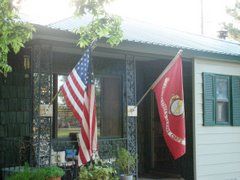
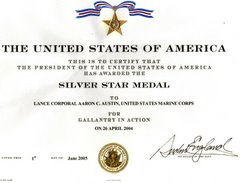
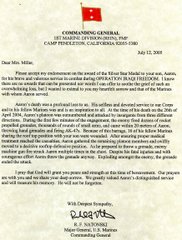
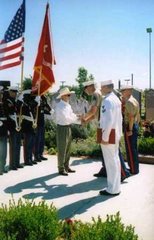


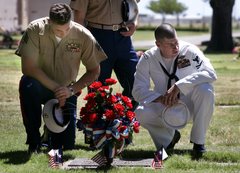

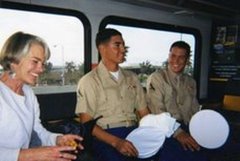

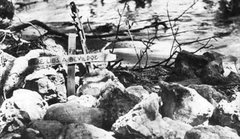


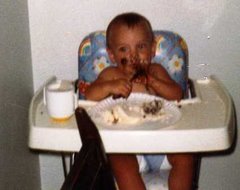

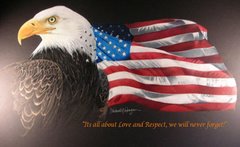
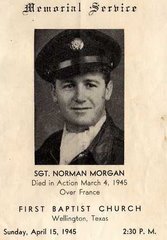
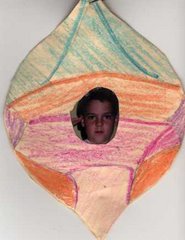

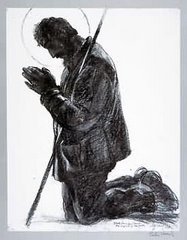
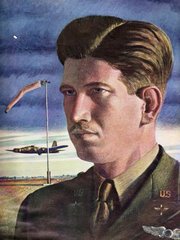

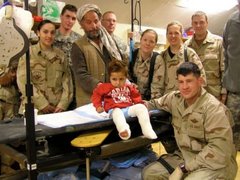
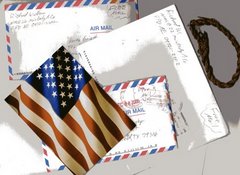

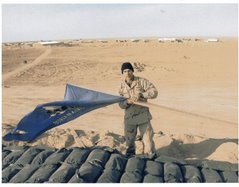


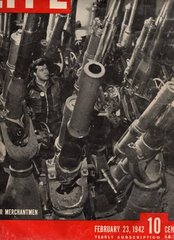
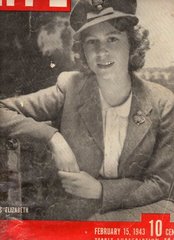

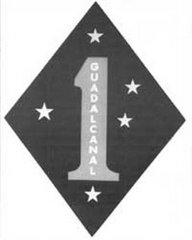
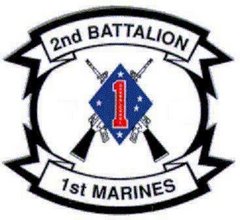


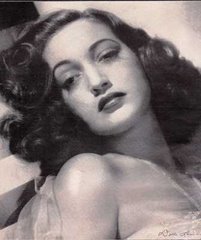

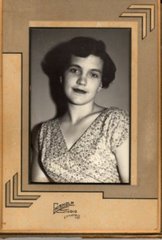

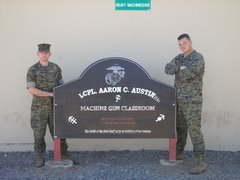

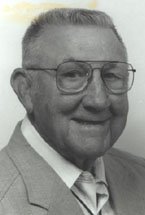

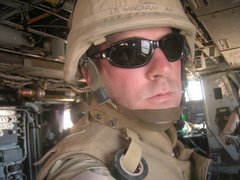
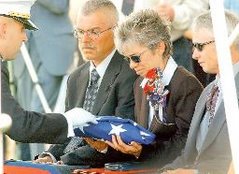


4 comments:
Thank you for your service, Colonel. You and the service you represented to the Gold Star Families will never be forgotten.
The Casualty Officers have a strength of will and an honour which few possess on this earth.
All I have to offer are the thanks of one whose family, in previous wars, never heard the words, but who grieved for friends and neighbours all the same...as I do now for my friends and neighbours in America and Canada.
God Bless you, De'on, for giving us this insight into the Corps you know and that we love.
Veritas et Fidelis Semper
And God Bless you for your support, Deborah. As you said, we're all in this together.
Thank you for posting these! I'm glad I could read them all at once. Casualty Officers past and present have my deep respect and gratitude.
Post a Comment